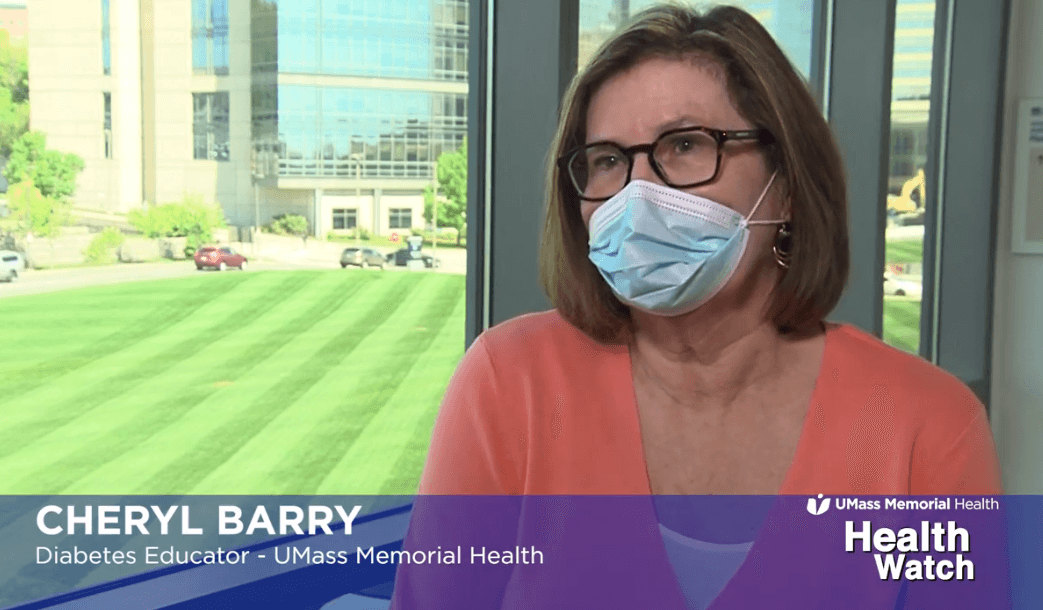Diabetes Education and Self-Management Support at UMass Memorial
Diabetes Education Topics Include:
- Healthy nutrition
- Insulin pumps & continuous glucose monitors (CGM)
- Diabetes medication
- Preventing acute & chronic complications
- Physical activity
Our certified diabetes care and education specialists (CDCES) provided diabetes education to more than 4,000 unique people this past year at Worcester’s UMass Memorial Medical Center, Children’s Hospital, Health Alliance Hospital in Leominster, and Tri-River Family Health Center in Uxbridge. Both individual and group classes are offered, and data show that these patients achieved an average A1c reduction of nearly 2% this past year.
Benefits of a Certified Diabetes Care and Education Specialist (CDCES)
Diabetes education has been shown to lower A1C and blood glucose levels similar to medication but without side effects. As “life happens” and circumstances change, a CDCES is available to help create a plan to successfully self-manage your diabetes. They’ll assist with situational problem-solving and offer emotional support.
Insurance Coverage for Diabetes Education
Most insurance plans, including Medicare and Medicaid, cover up to 10 hours of diabetes education in the first year of diagnosis. Medicare also pays for two hours of annual follow-up visits. Commercial insurance offers similar benefits. Contact your insurance company to ask about your specific coverage.
Getting Started
Anyone newly diagnosed with diabetes or who has never received diabetes education should take advantage of our Diabetes 101 workshop. For optimal results, consider combining group workshops and individual sessions with a CDCES, dietitian, and/or nutritionist. Your primary care physician or diabetes care team can provide a referral or more information. The initial assessment will determine which areas to focus on when developing your individual diabetes self-management plan for success.
The American Diabetes Association (ADA) and Association of Diabetes Care & Education Specialists (ADCES) recommend at least 10 hours of diabetes education. More than half of the people diagnosed with diabetes have not taken advantage of diabetes education.
An initial assessment by a CDCES will focus on seven self-care behaviors essential for improved health: healthy eating, physical activity, glucose monitoring, medication management, problem-solving & healthy coping. A personalized plan will provide resources & tools to self-manage diabetes based on your lifestyle.
Misconceptions
Many people think they'll have a “one & done” session with a CDCES, but it's an ongoing relationship. As “life happens” and circumstances change, your CDCES is available to help you create a plan for situational problem-solving.
Mapping Your Plan to Better Blood Glucose Control
Diabetes education workshops provide information, motivation, and support. Conversation Maps® are used to cover essential aspects of daily life with diabetes.
Diabetes Education at UMass Memorial Health
Ask your care team for a referral. For more information: cheryl.barry@umassmemorial.org or (508) 334-3206


